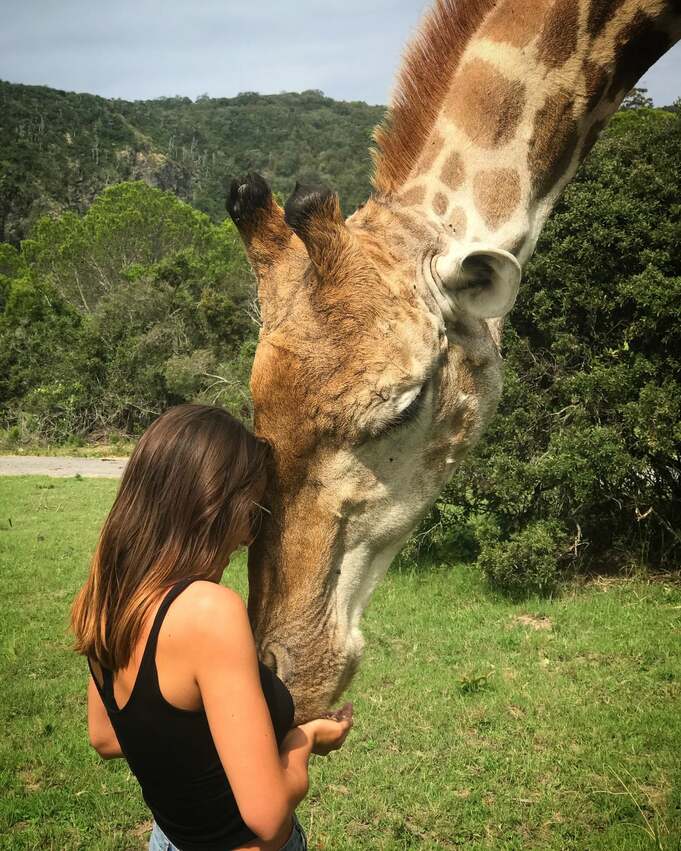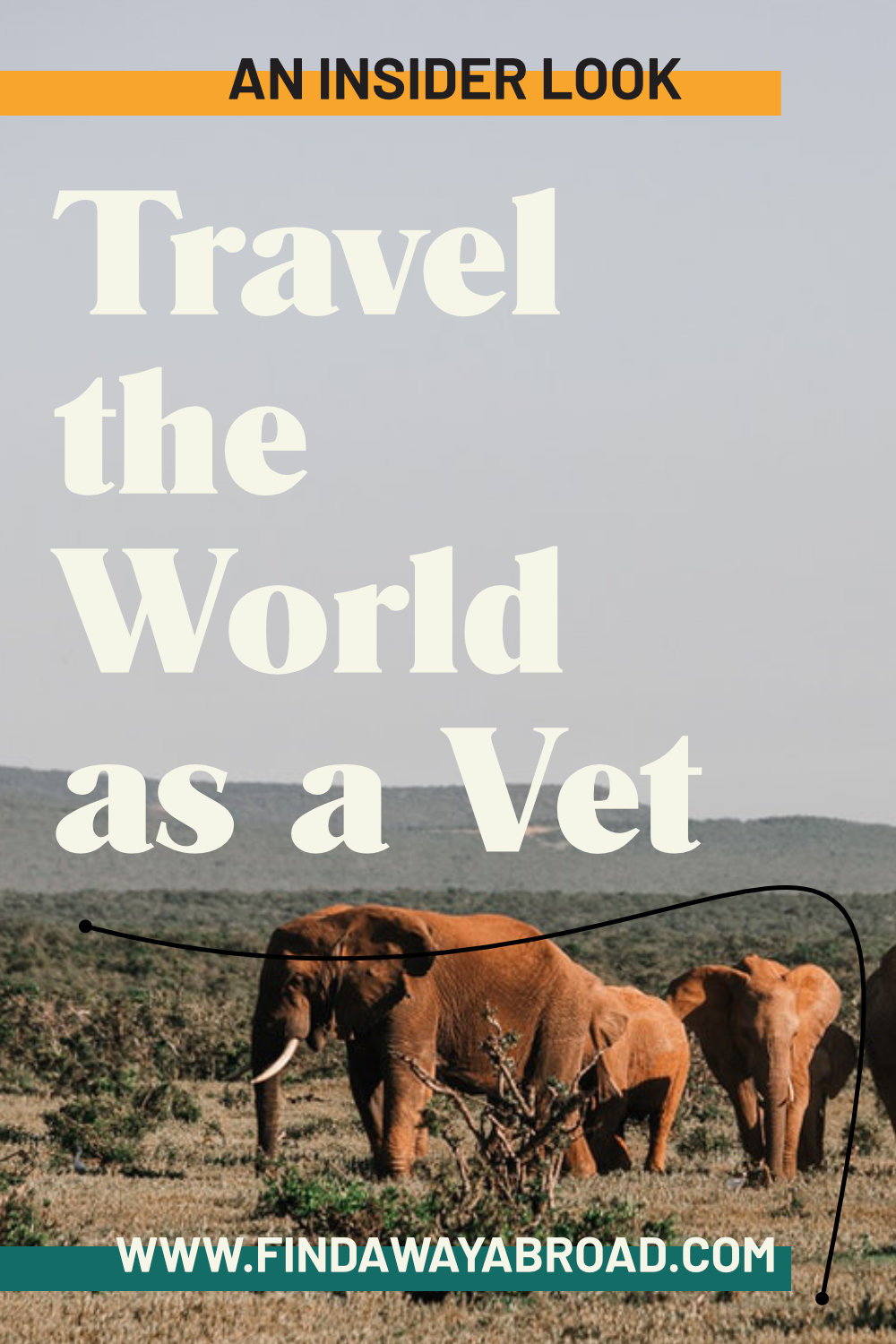My first passion is travelling, closely followed by my passion for animals.
These two work harmoniously together when pursuing a career abroad. I am a qualified veterinary nurse with an advanced certificate in emergency medicine and critical care. I completed my initial training in the UK and since qualifying have worked in Thailand, Australia, Kuwait, India and now South Africa. Enjoy your job and you’ll never work another day… follow me to find out how!
Know the requirements to get hired
- A level 3 diploma in Veterinary Nursing (UK qualification).
This course takes 2-4 years and can either be full-time with placements or in an apprenticeship style. The qualification is also run at degree level, as either a foundation degree or a bachelor of science at various universities across the UK. The course is challenging and requires written exams, practical exams and a portfolio to be completed.
The training is no walk in the park - it is intense yet rewarding and door-opening.
A similar degree can be obtained around the world but as I studied in the UK, that's where my expertise lies.
As a veterinary nurse who has benefited immensely from using the profession to travel, I feel it is my duty to show to the world how much this specialty has to offer in regards to globetrotting and wanderlust hunting!
How to obtain a job abroad
1. Use recruitment websites
Where there are animals, there are clinics. Where there are clinics there is a need for professional, trained veterinary staff. This means that veterinary nursing can take you as far as you want to wander. Not qualified as a vet but you are a nurse? Check out how to become a travel nurse and take your job all around the world.
Everyone has access to the web these days, which makes the world a much smaller and more accessible place. There are numerous recruitment sites like Vetlink, Vet Record, Vet Nurse Recruitment and my personal favourite, Kookuburra.
I found both my jobs in Thailand and Australia from this nifty gem of a recruitment website. It even arranges jobs simply by the areas of the globe you wish to visit. It ranges from charity placements to paid positions, locum to long term.
2. Schedule a video interview
Interviewing for these positions couldn’t be easier; Skype and Whatsapp video calls mean you can be in a boardroom whilst simultaneously sitting on your own sofa.
If you're specifically for jobs in Australia, by applying for the Work and Holiday visa, you'll become eligible to work and live in Australia for at least 1 year. Other working holiday visas are available for New Zealand and Japan.

3. Discuss your pay & benefits
All a gypsy heart longs for is a job they love, which accommodates for travelling, and that allows you to travel for longer on low funds.
Things to expect:
- You should not need to pay to work on a project
- You generally will have accommodation included in your package. Maybe it'll be more of a hut than the Hilton but nonetheless as it can provide a roof for a backpacker and eliminate hostel fees, it’s a win!
- It's common to receive a competitive expatriate package which includes accommodation, transport, health insurance, visa and of course flights. These packages really reduce monthly outgoings, which will in turn allow finances to be spent on what you actually want, meaning more trips.
Being based for a contracted period in an exotic spot can be of great benefit. Flights to spots that were once inaccessible due to long duration and painful costs have now become weekend getaways.
Differences working abroad as vet nurse vs. working in your home country
Veterinary nursing is a vocation that is commonly overlooked. Nurses are a crucial part of the veterinary team, their jobs include caring for patients, practice management and completing diagnostics. Nurses abroad are few and far between, which makes the UK, USA and Australian qualifications extremely desired.
Working abroad can differ hugely from working within the comfort of your motherland. Different species and diseases make for a more diverse and exciting caseload, which in turn improves job satisfaction. The veterinary profession differs hugely depending on the region, with diversity in cases, facilities, diseases and species.
Immersing yourself within the culture of your new abode is my favourite part of working abroad. Commonly the majority of staff employed will be locals, meaning you are exposed to much more of the local customs, such as language and lunchroom antics.
People sometimes worry that travel or working abroad may affect career progression, however when travelling with a profession it only accelerates your career. Travelling and gaining experience abroad is something most employers will seek, as it means the candidate has more life experience, greater maturity and an outgoing nature.
To be such a well-rounded member of staff is highly beneficial to a future employer.
Day in the life of a traveling Veterinary Nurse
No day is ever the same for a nomadic vet nurse. Commonly you will be based in the clinic focusing on anesthesia for routine procedures or complex fractures, but of course the medical cases abroad can be extremely complex, with many tropical diseases prevalent in Asia. Depending on how well equipped the clinic is, you may be performing blood transfusions on an animal with a tick-borne disease, or chemotherapy for a transmissible venereal tumor case.
South Africa is where I am based at the moment, which is home to some big pussy cats and some other majestic creatures. Commonly the veterinary team will be asked to assist with a game capture, which involves sedating an animal to either be moved to a more secure location, for administration of medication or for a general health check. The vet nurse plays a crucial role in this procedure, preparing the sedation and monitoring vital signs to determine depth of anesthesia. Hard life isn’t it just!

I couldn't image a better career choice. I urge those of you with a heart for travel and animals to consider a degree in Veterinary Nursing.
Read our disclaimer & privacy policy here.











.png)
.png)